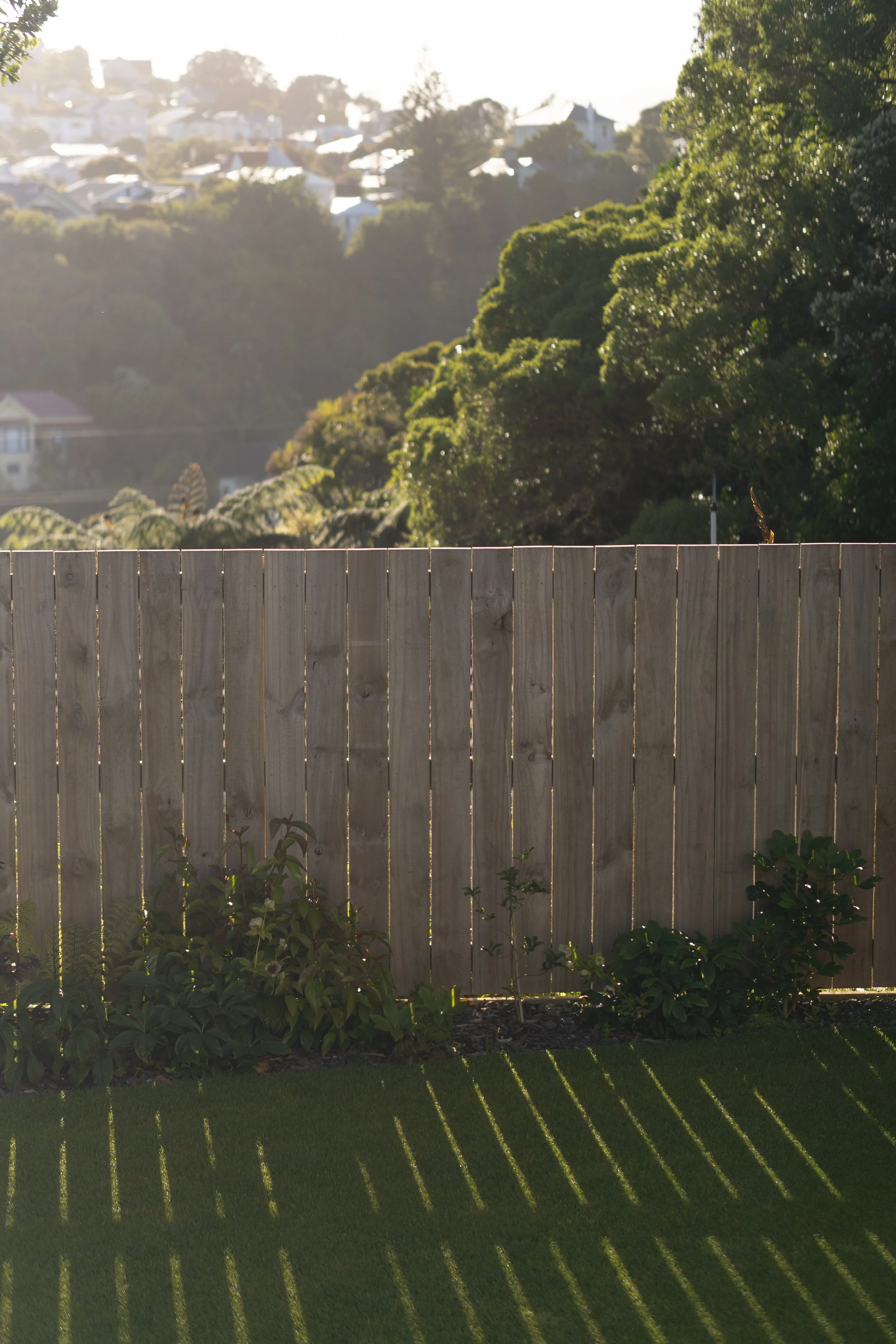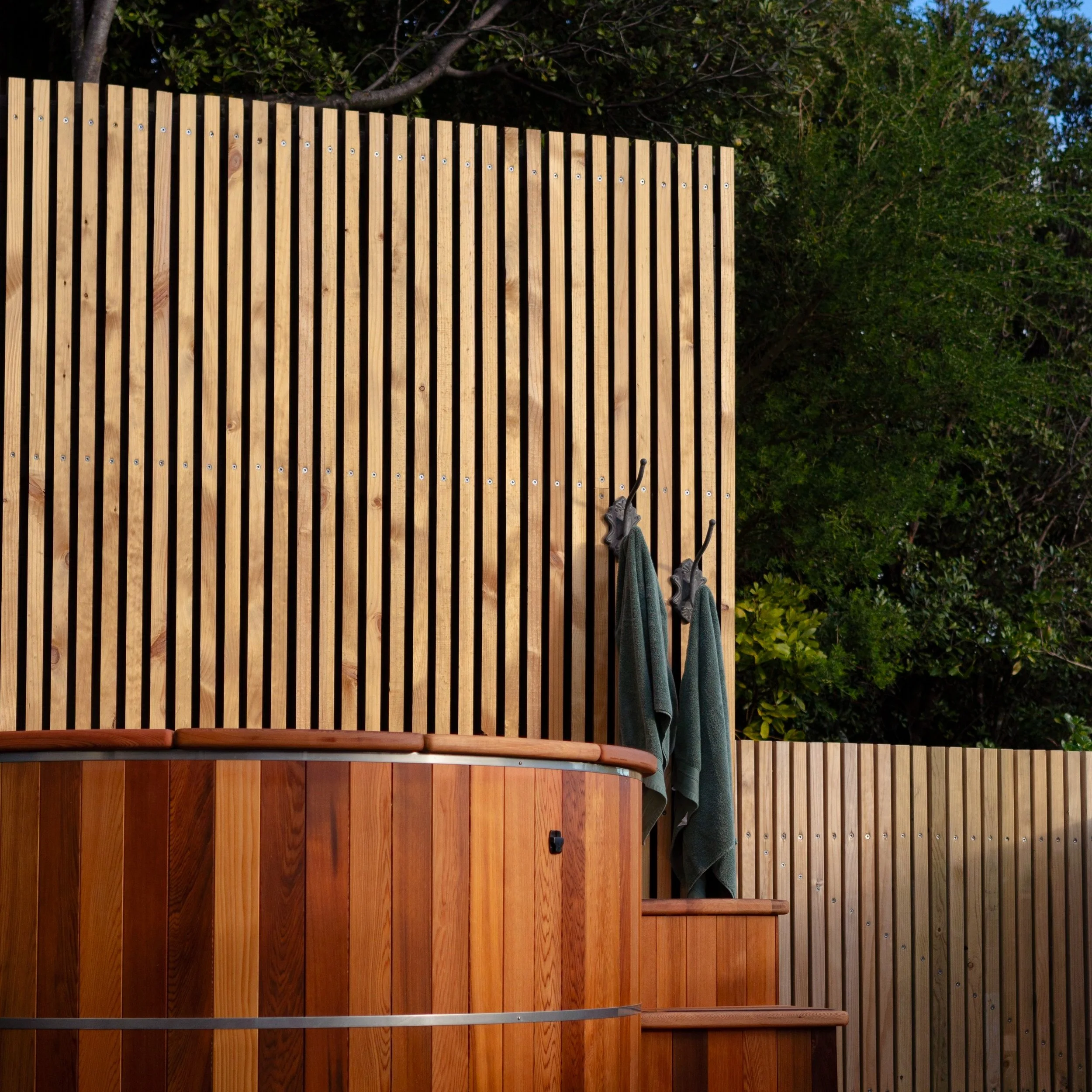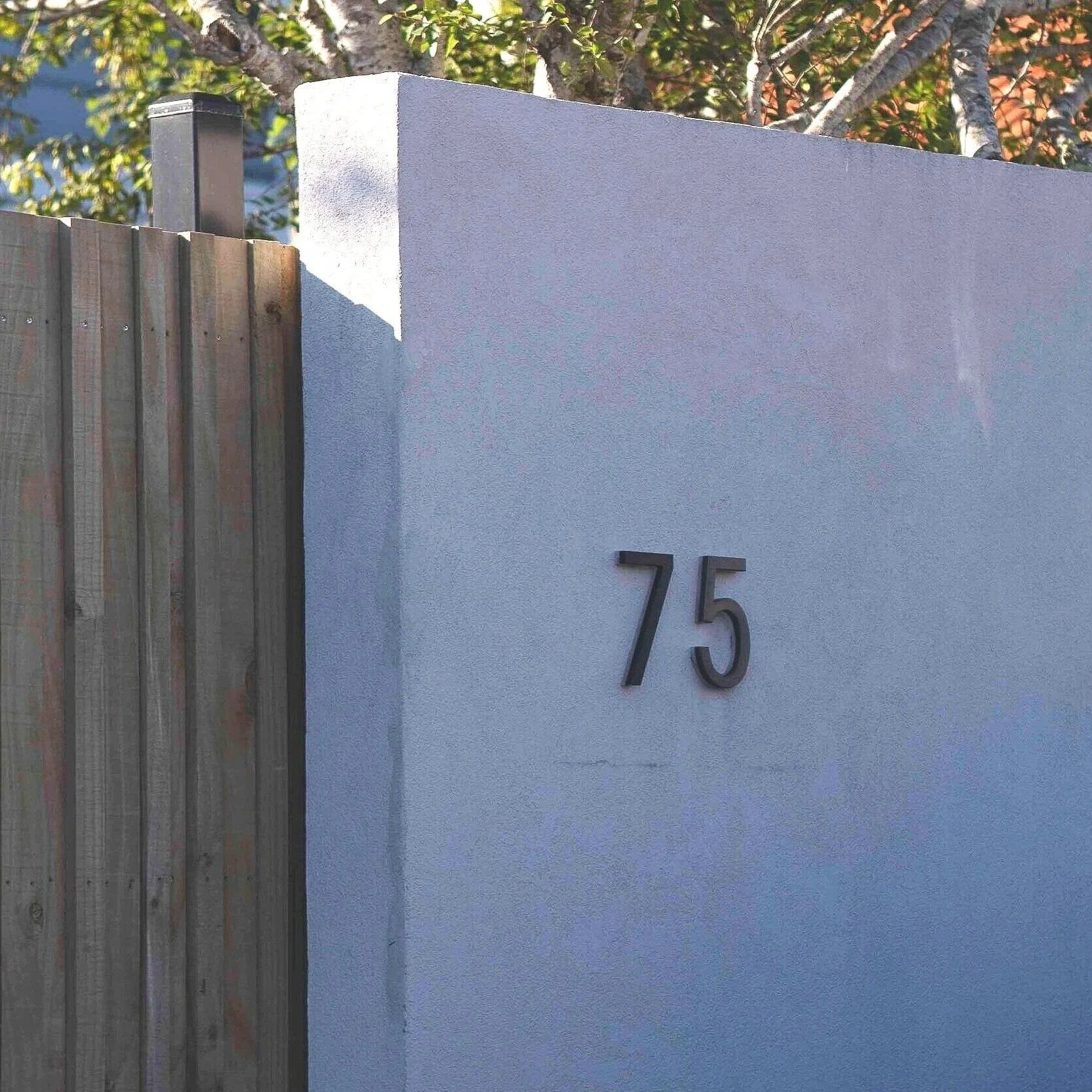Fences
Fences are often a practical necessity for Wellington sections, but they can also be a real feature piece in your landscaping.
They can offer privacy from your neighbours, safety for your children, noise reduction from the street, space definition or a zhuzh up for your front yard.
Here are a few examples of the kinds of fences we’ve designed and built.
Design options:
— Paling fences
— Panel fences
— Balustrades
— Batten fences
— Block walls
Paling fences
Paling fences are versatile, functional and durable. Often thought of as the kiwi go-to for defining boundaries and securing large spaces.
Usually constructed from rough sawn (not smooth sanded) pine timber. The palings (facing slats) are typically vertical, but can easily be horizontal too.
Options include capping (a thin plank of timber, attached horizontally on top of the fence to create a tidy finish), double siding (when the palings are attached to both sides so the fence looks equally great to both neighbours) and board and batten (a second layer of thick or thin palings are added to help reduce road noise or create a pinstripe aesthetic).
The spacings between the palings can be varied to create more or less privacy. They’re commonly attached without gaps.
Panel fences
Panel fences are a style step up from paling fences. Still functional and durable, but also polished and a bit more refined.
Usually constructed from dressed (smooth sanded) pine timber. But can also be constructed from rough sawn pine or hardwood timber. The palings (fencing slats) are typically vertical, but can be horizontal.
Panel fences are popular with owners of older character homes, homeowners wanting to paint their fence to match their home’s weatherboard facade and neighbours wanting a dressier double-sided boundary fence.
Options include post toppers (decoratively carved timber pieces that sit on top of posts), cutouts, decorative panel inserts, batten (thin, smooth battens of timber) inserts and beading detailing (picture framing, ornate or custom detailing).
Balustrades
Balustrades are usually lower in height than other fences. They’re designed to act as a handrail or safety rail, or be looked over, or through.
They can be constructed from dressed (smooth sanded) timber batten (thin, smooth battens of timber), metal, glass or recycled materials.
They can be simple and functional, or a design feature.
Balustrades are often deemed necessary for preventing falls from steps, decks and retaining walls.
Batten fences
Batten fences or batten screens use thin, smooth battens of timber to create a lineal wall (‘lineal’ because there are even gaps between the battens).
The battens can be thick or thin, of consistent or varying widths, heights and spacings.
Usually constructed from dressed (smooth sanded) pine or hardwood timber battens.
They are often considered to be a key component of wider landscape design.
Great for filtering sun, providing medium level privacy and reducing wind exposure.
Block walls
We begin by constructing a wall from concrete blocks, reinforcing and protecting it appropriately, then we finish it with a render system (plaster top coats).
Block walls are very resilient, designed to withstand the toughest conditions. Excellent at sound-proofing and fortifying your domain.
They are a bold statement piece and add a unique industrial aesthetic that compliments the softer textures of landscaping surprisingly well.
Explore more landscape design options
See fences in our projects
-

fences | gardens | decks | walls | steps | driveway | ...
Karori
-

steps | decks | walls | fences | paths | gardens | ...
Brooklyn
Wisdom
Landscaping in Wellington can present its unique challenges. We’ve spent years taming the terrain and know what to consider when designing your dream landscape.
-

Planting with New Zealand native flora
Native New Zealand plantlife is suited perfectly to Wellington’s wily weather conditions. Because of their adaptability to local environmental conditions, most New Zealand native plants are able to thrive in Wellington landscape design.
-

Keeping your lawn healthy
You’d think your lawn would be thriving with all this rain. While summer might sear patches into your lawn and cause your grass to brown, winter drowns everything in mud; the sort that’s easily shifted and deformed under even the slightest application of pressure.
-

Lessons from Japanese landscaping
The beauty of ornamental Japanese landscaping is that it can be achieved in the smallest of spaces. A small front yard or back yard can be transformed into an intimate natural escape.













